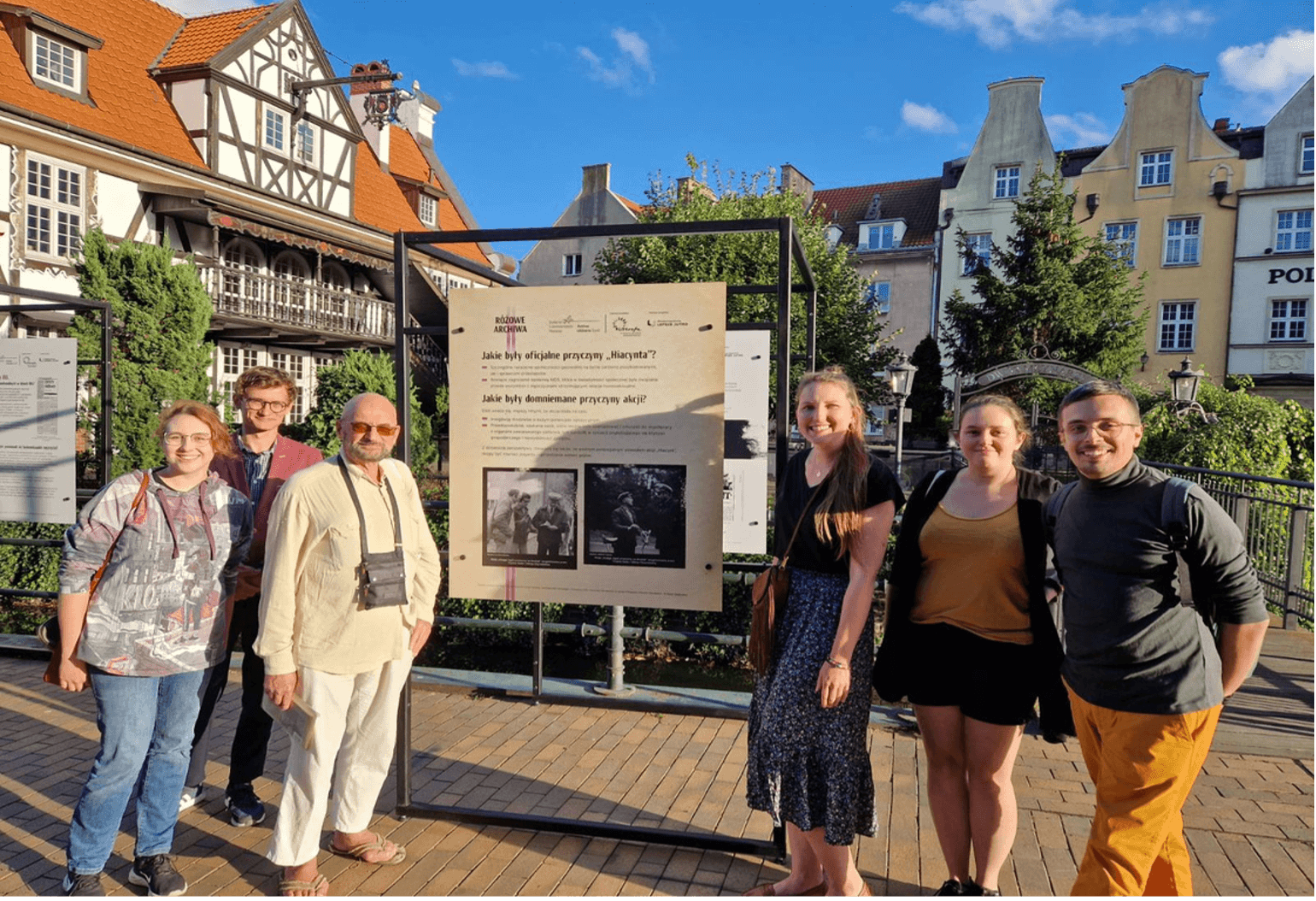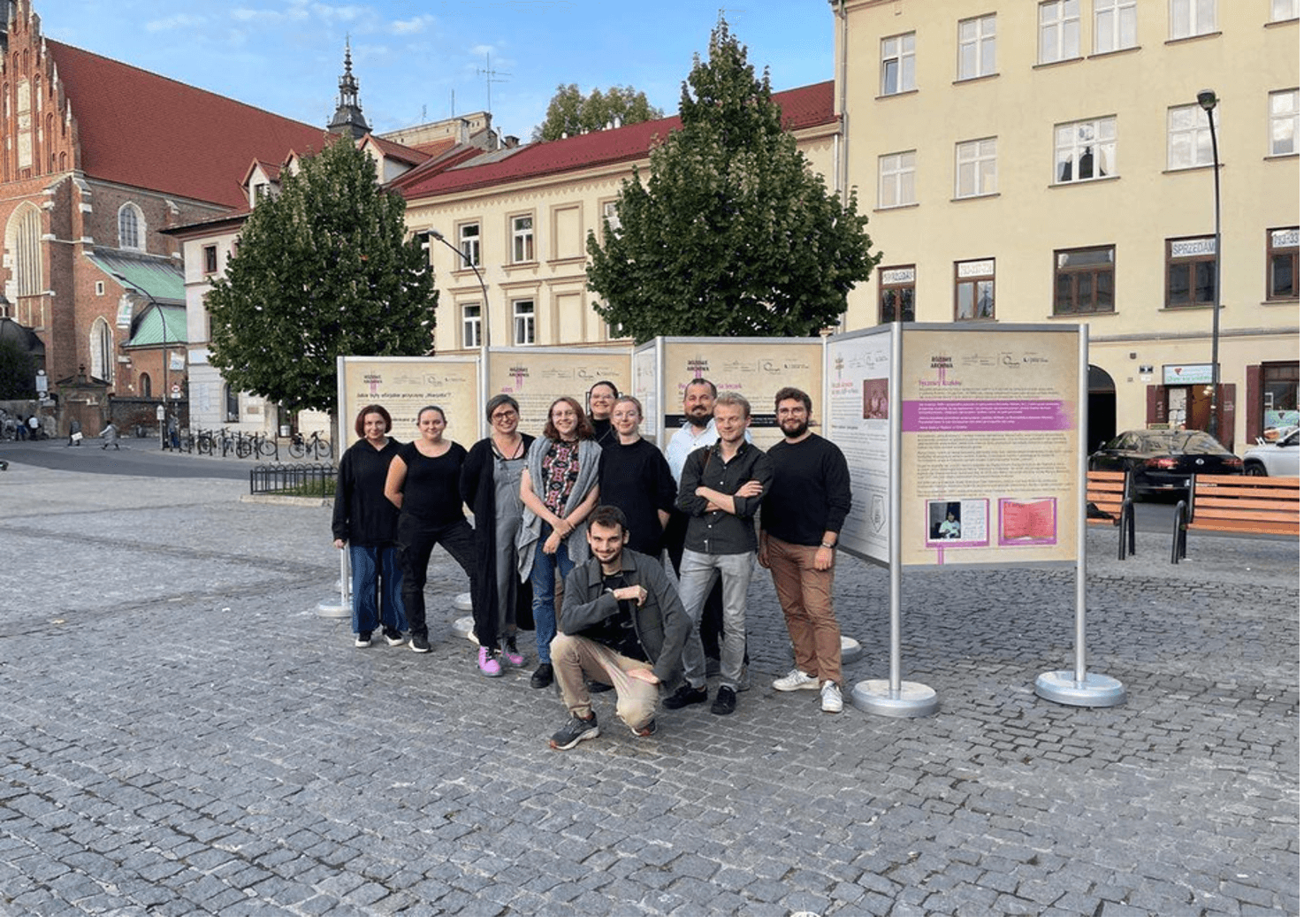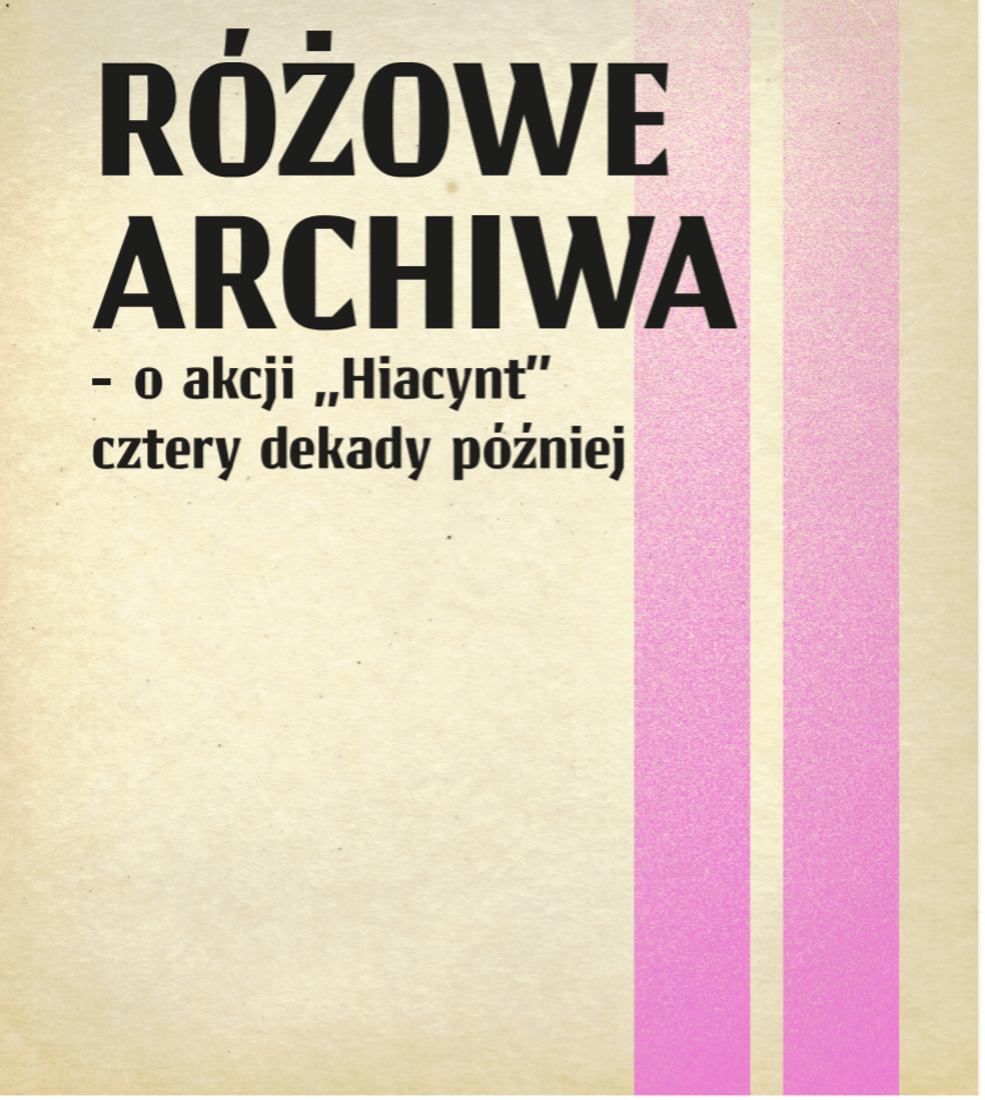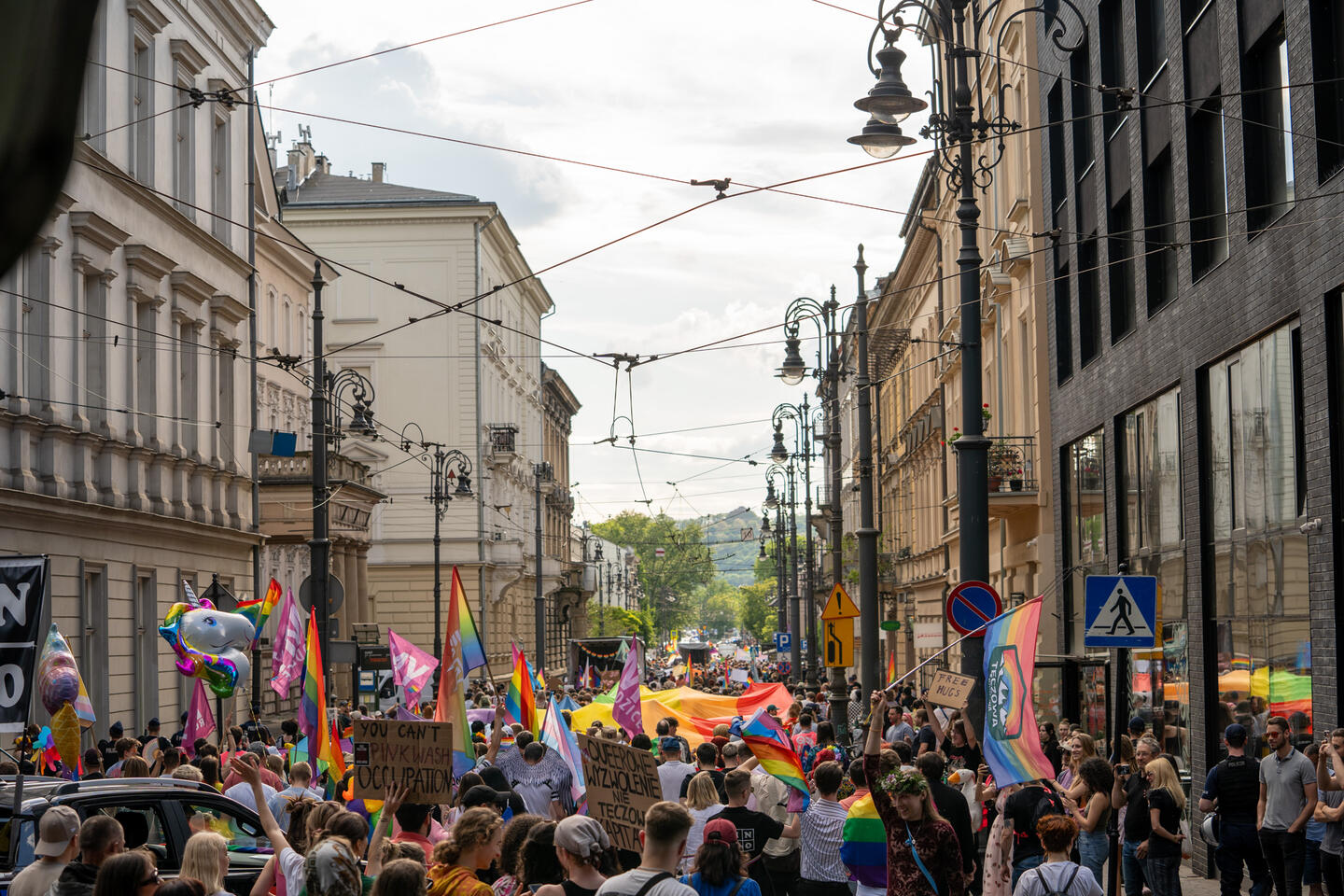There is a forgotten story of injustice and prejudice from the 1980s in Poland that has not truly seen the light. This is the story of the mass detention and interrogation of homosexual men. Amidst the shadows of the past, Operation Hyacinth of 1985-87 emerges as a sorrowful chapter in this story. It was a time when the Milicja Obywatelska, the national police at the time, orchestrated a campaign that saw the mass detention and interrogation of homosexual men.
The purpose of Operation Hyacinth was to create a national database of all Polish queer men, as well as the people they were in touch with. It is believed that the operation resulted in the registration of around 14,000 Polish men.

Photo credits: Polistrefa The Diversity Foundation
Creating Public Awareness
The Active Citizens Fund Regional project “Pink Archives” is run by the civil society organization “Polistrefa The Diversity Foundation.” They note that there is a lack of individual memory, and collective and institutional memory is limited to a narrow circle of directly engaged people. Through Pink Archives, they aim to collect and share knowledge about queer Polish history.
This topic is not talked about in the gay community and is not known to Polish LGBT+ society. There’s a lot of generational trauma that the younger generation is not aware of and it is important to educate them about the past. Polistrefa The Diversity Foundation
The organization behind the project has arranged a series of meetings across Poland on queer history, as well as a “human library” where attendees could speak to a real-life human “book.” The interactive workshops invited people from all walks of life to share their experiences and learn the art of storytelling. The project’s activities culminated in exhibitions dedicated to the history of the LGBT+ movement in Poland, bringing to light diverse perspectives showcased in Krakow, Gdansk, Szczecin, and Łodz.

An outdoor exhibition in Krakow, showcasing queer Polish history as part of the Pink Archive project. Photo credits: Polistrefa The Diversity Foundation
Spreading awareness through video
Another result of the project was the creation of three “audiovisual” recordings and interviews with Leszek Truchliński, Jacek Solist, and Ryszard Kisiel, all of whom shared stories about the Hyacinth Operation and the formation of LGBT+ movements in Poland.
What remains after Hyacinth?
The official reasons given for the operation included combating the spread of the HIV virus, dealing with prostitution, and monitoring homosexual criminal gangs. However, the underlying motive was more sinister. The authorities sought to gather compromising evidence to blackmail individuals into spying on their colleagues, particularly targeting gay intellectuals, authors, and artists.
Today, it is still unclear where the database of registered queer men is located or whether it even still exists.
In 2007, two LGBT+ activists submitted a request to the Institute of National Remembrance to initiate an investigation into Operation Hyacinth. The application was rejected.
The Institute of National Remembrance response did not go unnoticed among the LGBT+ community. LGBT+ activist

The work done during the “Pink Archive” project accumulated in a publication about the Operation Hyacinth.
To discuss this further, a conference named "Pink Archives: What Remains After Operation Hyacinth?" took place on October 12, 2023, in Krakow. It was part of the EEA and Norway Grants-funded project and aimed at creating a space for conversation for people from academic and activist communities. The overall topic was the course of the Hyacinth campaign, its context, as well as its impact on today's situation of the LGBT+ community.
An ongoing battle for justice
This dark period, a stark reminder of the prejudices that have held back the diverse Polish community, is not merely a footnote in history but a reflection of the struggles faced by the non-heteronormative community.
Yet, from the depths of such historical injustice, there truly is a light at the end of this tunnel. The present stands as a testament to change, as numerous LGBT+ organizations and activists are leading the fight for equality and acceptance. Their efforts are not just a defense but a clarion call for a future where love and identity are celebrated in all their forms.
Read more about the important work of the Pink Archive on the project webpage: https://rozowearchiwa.pl/
